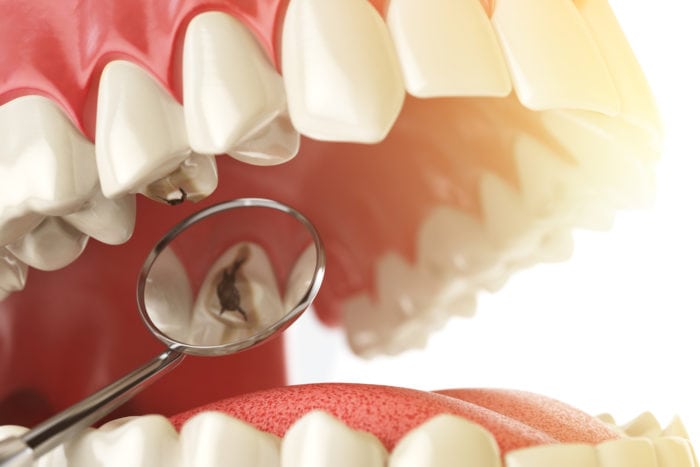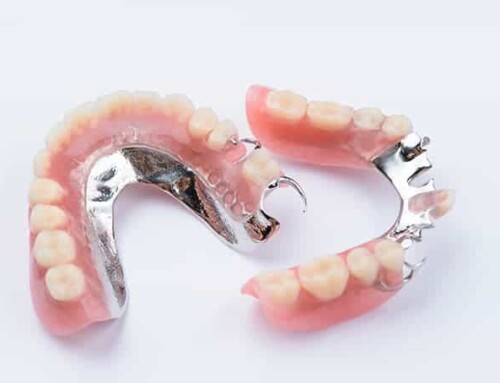
Tooth Cavities and Severe Tooth Decay
Oftentimes people will use the words tooth decay and cavities interchangeably. It is presumed by most folks that these two conditions are the same. However, according to the American Dental Association, they are very different conditions with diverse consequences. You may consider one as the process that leads to the other.
Tooth Decay is progressive damage of tooth enamel. It may start with injury, infections, or any other damaging factors. However, the damage is limited on the outer protective coating or enamel.
On the contrary, a tooth cavity is a hole or holes in the enamel layer of the tooth that eventually progresses towards the core of the teeth. When cavities become enlarged, they expose the nerve endings and blood vessels of the teeth, to air, food and beverage that can cause pain.
Causes Of Teeth Decay
If you want to prevent tooth decay, you need to first know the causes. Most reasons for tooth decays are listed below. Read further to learn more.
Sugary or starchy diet
Consumption of foods with high starch and sugar content exposes the tooth to harmful acids that instigate gradual loss of enamel.
Poor oral hygiene
It sounds simple; however; it is the most common cause of tooth decay. Despite knowing the benefits, some people still do not follow the dental hygiene rules and damage our precious smile. According to the American Dental Associations, we should brush at least twice and floss once daily. Nevertheless, the disturbing fact is about 23% adult, and 12% of children do not follow the recommendations for oral hygiene practices.
Plaque buildup and attack
When a sugary or starchy diet is combined with poor oral hygiene, you will develop thick plaque on teeth. Plaque is a sticky film of bacteria that feeds on sugars and starches that are left behind on your teeth. While bacteria may consume leftover remnants of foods, they also attack and de-mineralizes the enamel. These events cause cavities that may grow bigger and deeper if care is not taken.
Your risk of suffering tooth decay also increases if you:
- Often experience dry mouth
- Do not use or not getting enough fluoride
- Consume sugary or starchy snacks or drinks frequently
- Suffer from an eating disorder
How Long Does It Take For Teeth To Decay?
Tooth decay is a gradual process that does not just happen overnight. Your teeth become vulnerable to possible decay from acid formation minutes after your consumption of something sugary or starchy. Acids produced by plaque bacteria eat away at your tooth enamel very slowly. It could take several months or even years before the damage becomes considerable, requiring professional care. However, different factors, including age and dental hygiene practice, determine how rapidly tooth decay and cavities set in.
Treatment Options For Tooth Decay
After diagnosing tooth decay, your dentist is likely to recommend any of the following treatments:
Fluoride
If it is detected that you are not getting enough fluoride, you may be advised to undergo fluoride treatment. Other treatment options like varnish, gel or foam, to strengthen and rebuild your teeth.
Dental fillings
This option is applicable when the erosion has advanced to the cavity stage. Your dentist will remove decayed matter and replaces with a filling, a tooth-coloured material such as resin, porcelain or many more.
Crowns
Severe tooth decay often requires a cap, which is typically larger than a filling. The entire damaged area is covered with a tooth crown to eliminitae further deterioration.
Root canal
This procedure is crucial when the decay has gotten to the core of your tooth. Root canal Therapy involves the removal of an infected or damaged centre and replaces with filling materials. In some cases of severe damage, the tooth is extracted and may be replaced with a dental bridge or an implant.
What happens if Tooth Decay is Left Untreated?
It is crucial to take remedial action as soon as you notice tooth decay. A timely step will prevent possible complications, including:
- Tooth fracture
- Pain or discomfort
- Chewing problems
- Tooth abscess
- Tooth sensitivity
- Infection
- Bone loss
It is common to get tooth issues like decay and cavities, but following dental hygiene practice and taking preventative measure will save you from any future complications.



